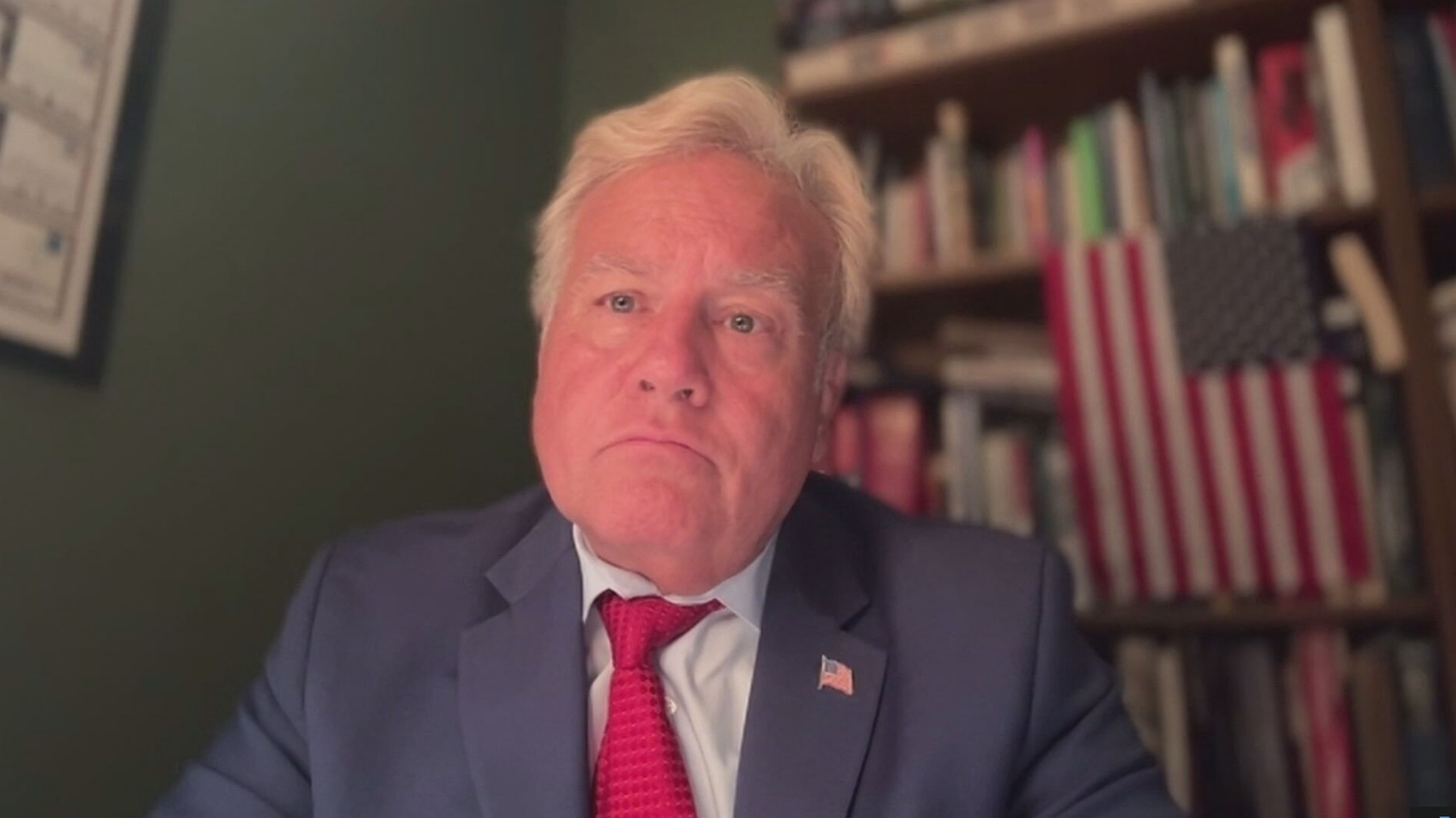“No Moral Equivalency”: U.S. Analyst Defends Israeli Strike on Iran, Warns of Wider Escalation
David Wallace of Fair Energy Foundation defended Israel’s strike on Iran’s Natanz site, calling it justified. He warned Iran against targeting U.S. bases in Iraq and praised U.S.-Israel cooperation.

By Kamaran Aziz
ERBIL (Kurdistan24) – In an interview with Kurdistan24 on Saturday, David Wallace, President of the U.S.-based Fair Energy Foundation, defended Israel’s controversial strike on Iran’s Natanz nuclear facility, characterizing it as a justified preemptive action in the face of existential threats.
He also warned of dire consequences should attacks on U.S. interests in Iraq or the wider region continue.
Wallace began by asserting that the Israeli strike on Natanz—a core part of Iran’s nuclear infrastructure—was not only expected but consistent with Israel’s long-standing policy of preemption in the face of perceived existential threats.
“That’s their whole purpose, and Natanz was attacked yesterday,” Wallace confirmed. “All along, Iran has said this is strictly for domestic production of nuclear energy. We know that’s been a lie.”
He reiterated that Israel acted unilaterally in the face of mounting nuclear threats despite American appeals for restraint.
“The United States told them to refrain,” Wallace said. “We gave them five nuclear sets of talks. Five. And not one time did they agree to stop.”
“No Moral Equivalency”
Wallace strongly rejected any comparison between Israel’s actions and Iran’s nuclear ambitions.
“There’s no moral equivalency between a country defending itself and another country creating nuclear weapons to annihilate another,” he said.
He emphasized that Iran has long viewed the U.S. as “the great Satan” and that the Israeli strike followed a final, tense exchange between U.S. President Donald J. Trump and Israeli Prime Minister Benjamin Netanyahu. According to Wallace, Trump had urged a delay until the weekend negotiations.
“We were going to negotiate with Iran... but Netanyahu felt it was beyond the time and no more waiting. They made their preemptive strike.”
Missile Barrages and Regional Fallout
Wallace confirmed that the United States is now actively supporting Israel’s defense against Iranian missile strikes targeting Tel Aviv, Jerusalem, and other locations.
“We are assisting Israel in bringing down those missile barrages,” he stated.
He warned that should U.S. personnel or bases in Iraq—particularly Ain al-Asad or Erbil—come under attack, the consequences would be devastating.
“What we did to the Houthis in Yemen is what we will do to any forces that raise their heads and fire missiles at Ain al-Asad or Erbil,” he cautioned. “President Trump will not accept any kind of attack anywhere in the Middle East against U.S. interests.”
He further added that Popular Mobilization Forces (PMF) encircling U.S. bases could provoke direct retaliation.
“They are creating a provocation... and it will cause damage for all of Iraq, especially Baghdad.”
Eyes in the Sky: Surveillance and Responsibility
Wallace sought to reassure Iraqis and Kurds that the United States is carefully monitoring regional developments.
“Through satellite imagery, the United States and Israel can see where the missiles are coming from,” he said. “Unless other forces that secrete within Iraq start firing, there is no issue.”
Regional Alliances and Firepower
Highlighting America’s recent military actions and diplomatic outreach in the region, Wallace emphasized U.S. military strength and alliances.
“We’ve shown the Houthis what kind of firepower we have. We’ve rained hell down on them,” he said, referencing retaliatory strikes against attacks on U.S. naval and commercial vessels.
Wallace affirmed continued U.S. support for Israel, Egypt, Saudi Arabia, and others.
“We’ve been standing shoulder to shoulder with them.”
He warned Iran not to underestimate the U.S. response should Iranian actions escalate or expand into American territory.
“If sleeper cells are released against U.S. installations here... the Ayatollah would not exist anymore,” Wallace declared.
Looking ahead, Wallace envisioned a post-conflict Middle East free of Iran’s current leadership.
“There’s one premise: No nuclear weapons for Iran,” he said. “And as long as those capabilities are not neutralized or surrendered, the attacks are going to continue.”
However, he ended on a note of hope, suggesting that the collapse of Iran’s ruling system could bring long-awaited freedom to its people and regional stability.
“There’s a massive population within Iran that is rooting for Israel to decapitate the leadership... to bring a reasonable governance to Iran,” Wallace said. “This is our hope. This is the outcome I’m rooting for—and that United States citizens and Kurds and Iraqis under Iran’s duress are rooting for.”
Wallace concluded his remarks with a message of solidarity:
“I’m praying for Iraq. I’m praying for Kurdistan. And God bless all of the good people of Kurdistan.”
